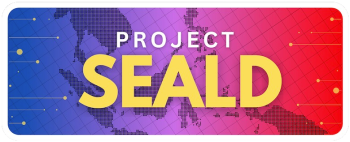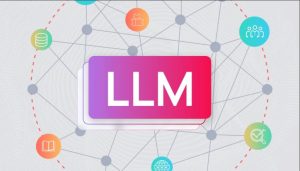
AI Singapore (AISG) and Google Research have embarked on Project SEALD (Southeast Asian Languages in One Network Data), a research collaboration to enhance datasets that can be used to train, fine-tune, and evaluate large language models (LLMs) in languages spoken across Southeast Asia (SEA). This collaboration seeks to improve cultural context awareness and capabilities in SEA LLMs, and advance their applicability across the region to bring broad benefits to society.
“VISTEC is excited to be part of this pan-ASEAN natural language processing (NLP) development offered by Project SEALD, a vital collaborative mechanism that sets our diverse NLP communities in one collective and strategic direction. In particular, Project SEALD will alleviate the resource constraints associated with incorporating SEA languages into AI innovations by delivering new pre-trained language models, datasets, and benchmarks. VISTEC is proud to be an official partner, contributing our expertise in Thai NLP to this project,” said Sarana Nutanong of the Vidyasirimedhi Institute of Science and Technology in Thailand.
Project SEALD: Improving Inclusivity in SEA LLMs
Starting with Indonesian, Thai, Tamil, Filipino, and Burmese, the research under Project SEALD will help build a diverse and high-quality data corpus of languages spoken in SEA to support the training of models under SEA-LION (Southeast Asian Languages in One Network)—an initiative by AISG to develop a family of LLMs specifically pre-trained and instruction-tuned to be more representative of SEA’s cultural contexts and linguistic nuances—and other models that can add value to SEA-centric use cases.
Under Project SEALD, AISG and Google Research Asia Pacific (APAC) will work together on:
- Developing translocaliswation and translation models,
- Establishing best practices for instruction tuning datasets,
- Creating tools to enable translocalisation at scale, and
- Publishing pre-training recipes for SEA languages.
AISG and Google will release the datasets and output from Project SEALD in open source to advance the progress of the SEA LLM ecosystem and foster strong regional expertise.
“The SEA-LION LLM project has always been about building a community and ecosystem that will continuously work together to enhance the quality of the SEA-LION data corpus and continuously improve SEA-LION’s capabilities. We are happy that Google now stands as a key part of the SEA-LION ecosystem and we look forward to building better datasets through Project SEALD in collaboration with Google for the benefit of the entire community,” said Leslie Teo, Senior Director of AI Products at AISG.
Addressing Underrepresentation in AI
As a specific use case, Project SEALD is working to improve communications with under-represented populations of migrant workers in Singapore, who may speak and understand a variety of regional languages with greater fluency than English. Data collection efforts to better capture linguistic nuances within this community will provide the foundation for enhanced engagement by both the Singapore Government and employers. 
When integrated into one of the generative AI solutions first developed under the AI Trailblazers initiative by the Singapore Government and Google Cloud, the datasets and output from Project SEALD can aid outreach across a variety of important domains, such as redressal of worker grievances and extension of assistance schemes.
Lastly, Project SEALD will engage with ecosystem partners—academia, industry, and government—in various ways. These include working with industry players for data collection, curation, and quality checks, collaborating with academia in different SEA countries to implement state-of-the-art techniques in evaluation and benchmarking, and partnering with government stakeholders in Singapore and across the region to advance use cases for public good.
Advancing SEA LLMs for the Region
Building on this, AISG is collaborating with Google Cloud to make its SEA-LION LLMs available on Google Cloud’s Model Garden on Vertex AI, which provides organizations with access to first-party, third-party, and open models that meet Google Cloud’s strict enterprise safety and quality standards.
“Google is proud to be partnering with AISG to put Singapore and SEA on the map of AI model development,” said Yolyn Ang, Vice President, Knowledge and Information Partnerships, at Google APAC, By focusing on languages spoken and used in SEA and cultural understanding, Project SEALD will significantly improve the existing corpus and evaluation benchmarks for these languages. This will open new opportunities and make AI more inclusive, accessible, and helpful for individuals and businesses throughout the region.”
Through Vertex AI, organisations can use enterprise-grade tools to easily customise these models to address relevant use cases and integrate them into their applications. In addition, AISG will continue to make its SEA-LION LLMs available on Hugging Face, which has been partnering with Google Cloud to help developers train, tune, and serve open models quickly and cost-effectively.
AISG has also initiated collaborations across Singapore and other SEA countries. For example, AISG has signed Memorandums of Understanding (MOUs) or Letters of Intent (LOIs) with Indonesian, Malaysian, and Vietnamese entities for the development of datasets and applications for regional LLMs. In addition, AISG has been engaging partners in Thailand, the Philippines, and Indonesia to build resources on regional language syntax and semantics. Finally, in the Singapore context, AISG works closely with public sector and R&D stakeholders on safety alignment and multimodality.
In APAC, Google Research has a similar large-scale language inclusivity project ongoing in India with the Indian Institute of Science via Project Vaani—an initiative that is gathering, transcribing, and open-sourcing speech data from across all of India’s 773 districts.
“As we continue to work with AISG through XFORM, Inc. in developing localized, comprehensive, and inclusive datasets, we are looking forward to contributing to Project SEALD, which will make a significant contribution in building localized, culture-driven, context-sensitive, and open-source LLMs for SEA through the Ateneo Social Computing Science Laboratory,” added Maria Regina Estuar, Head, Ateneo Social Computing Science Laboratory and CEO at XFORM, Inc.
 (0)
(0) (0)
(0)Archive
- October 2024(44)
- September 2024(94)
- August 2024(100)
- July 2024(99)
- June 2024(126)
- May 2024(155)
- April 2024(123)
- March 2024(112)
- February 2024(109)
- January 2024(95)
- December 2023(56)
- November 2023(86)
- October 2023(97)
- September 2023(89)
- August 2023(101)
- July 2023(104)
- June 2023(113)
- May 2023(103)
- April 2023(93)
- March 2023(129)
- February 2023(77)
- January 2023(91)
- December 2022(90)
- November 2022(125)
- October 2022(117)
- September 2022(137)
- August 2022(119)
- July 2022(99)
- June 2022(128)
- May 2022(112)
- April 2022(108)
- March 2022(121)
- February 2022(93)
- January 2022(110)
- December 2021(92)
- November 2021(107)
- October 2021(101)
- September 2021(81)
- August 2021(74)
- July 2021(78)
- June 2021(92)
- May 2021(67)
- April 2021(79)
- March 2021(79)
- February 2021(58)
- January 2021(55)
- December 2020(56)
- November 2020(59)
- October 2020(78)
- September 2020(72)
- August 2020(64)
- July 2020(71)
- June 2020(74)
- May 2020(50)
- April 2020(71)
- March 2020(71)
- February 2020(58)
- January 2020(62)
- December 2019(57)
- November 2019(64)
- October 2019(25)
- September 2019(24)
- August 2019(14)
- July 2019(23)
- June 2019(54)
- May 2019(82)
- April 2019(76)
- March 2019(71)
- February 2019(67)
- January 2019(75)
- December 2018(44)
- November 2018(47)
- October 2018(74)
- September 2018(54)
- August 2018(61)
- July 2018(72)
- June 2018(62)
- May 2018(62)
- April 2018(73)
- March 2018(76)
- February 2018(8)
- January 2018(7)
- December 2017(6)
- November 2017(8)
- October 2017(3)
- September 2017(4)
- August 2017(4)
- July 2017(2)
- June 2017(5)
- May 2017(6)
- April 2017(11)
- March 2017(8)
- February 2017(16)
- January 2017(10)
- December 2016(12)
- November 2016(20)
- October 2016(7)
- September 2016(102)
- August 2016(168)
- July 2016(141)
- June 2016(149)
- May 2016(117)
- April 2016(59)
- March 2016(85)
- February 2016(153)
- December 2015(150)
